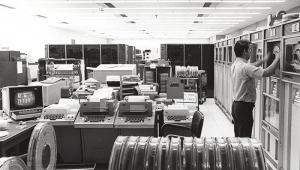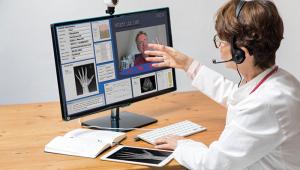
The world of work is likely to change dramatically over the next few years in terms of technology, skills and employee expectations.
As millennials, born between 1980 and the mid-1990s, move into senior roles, and Generation Z (born after 1993) make up an increasingly large part of the workforce, they’ll shape how we work and optimise use of new technologies.
For these digital natives, working for an employer that embraces innovation and invests in technology is important. They’re asking why back-office systems are so inefficient? Why can’t applying for a job or booking leave be as easy buying from Amazon or using Uber to book a taxi? In addition, improvements in work-life balance, coupled with agile and flexible working, are increasingly important in recruiting and retaining staff, and are likely to become even more so in the future.
A lot has been written about millennials, Generation Y, and how employers can best tap into this tech-savvy talent.
While it is dangerous to try to categorise a whole generation, they are depicted as educated, civic-orientated, entrepreneurial, environmentally conscious, and progressive. In short, ideally suited to reimagining our public services – if we can recruit and retain them.
‘By the early 2020s, millennials and Generation Z will make up more than 50% of the workforce. At the same time, we will be seeing more robotic process automation and artificial intelligence.’
Less is known about Generation Z –predicted to be the most entrepreneurial generation yet. They are instinctive users of technology, have grown up with social media and can’t imagine a world without the internet and Netflix. They process information fast, instinctively multitask and quickly move onto the next thing.
A recent study across 17 countries suggests 80% are optimistic about how technology and automation will affect the workplace and believe that it will create a more equitable work environment. Ninety one per cent say that the technology offered by an employer would be a deciding factor between similar jobs.
By the early 2020s, millennials and Generation Z will make up more than 50% of the workforce. At the same time, we will be seeing more robotic process automation (see Technology Watch, May 2018) and artificial intelligence.
These powerful tools should provide simple and cost-effective processes for dealing with enquiries, transacting and automating back-office services. It will mean that routine things will be automated, with human input needed only where judgement is required and to design and streamline systems. This should create more time, space and money for areas where human input is most important.
How can we create an environment to draw in and nurture the skills and energy available? Will it mean fewer, more highly paid staff?
As a starting point, I suspect that the workforce of the future will have similar expectations of wanting to do something worthwhile, with reasonable remuneration, work-life-balance, a good career path and recognition from their managers and peers.
But they will also expect access to the tools and technology that make a smaller workforce viable. How do we plan for this smaller and more tech-savvy workforce? Are your plans in place?



















